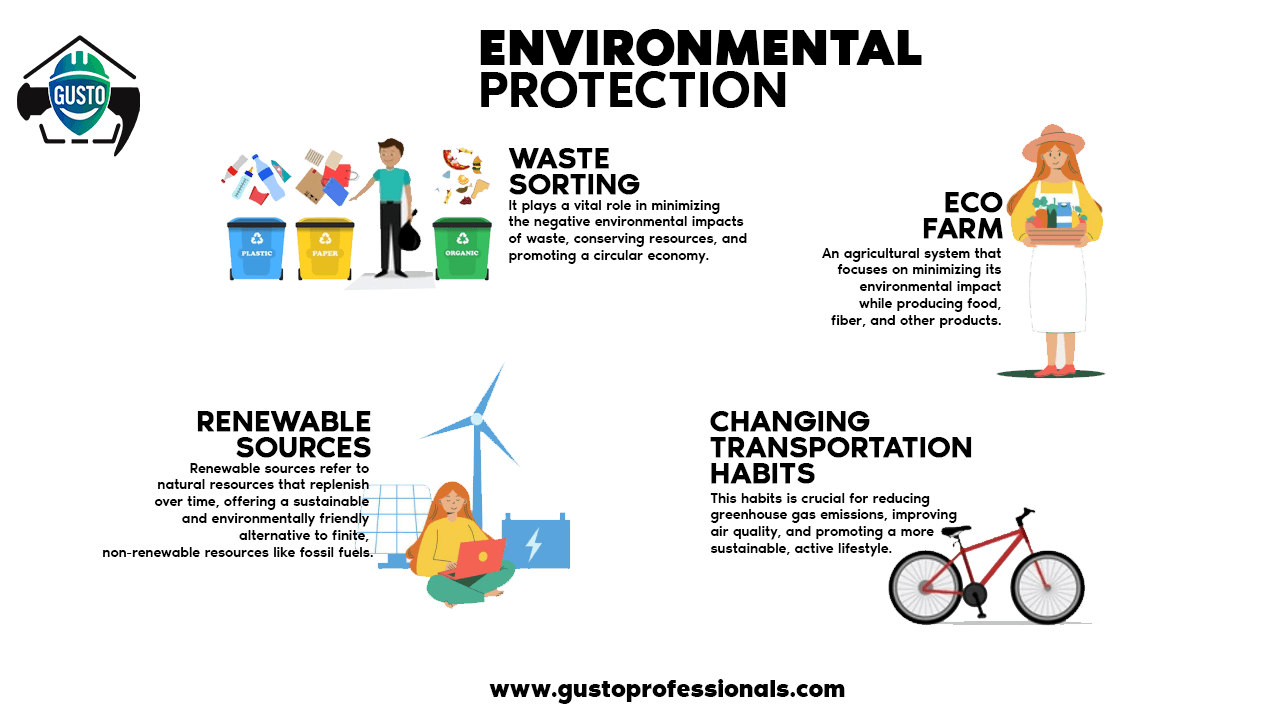
article
Environmental Protection
7 Oct 2025 | 1 min read
Go back
Environmental Protection
Environmental protection refers to the practices, policies, and initiatives aimed at conserving the natural environment and preserving its resources for current and future generations. It involves reducing the negative impacts of human activities on the planet, promoting sustainable practices, and raising awareness about environmental issues. Key aspects of environmental protection include:
Reducing pollution: Minimizing air, water, and soil pollution through regulations, clean technologies, and responsible waste management.
Conserving biodiversity: Protecting endangered species, preserving natural habitats, and promoting ecosystem balance.
Sustainable resource use: Efficiently managing natural resources like water, forests, and minerals, ensuring their long-term availability.
Addressing climate change: Implementing strategies to mitigate greenhouse gas emissions, promoting renewable energy, and adapting to the impacts of global warming.
Promoting public participation: Encouraging individuals, communities, and organizations to engage in environmental conservation efforts.

Environmental protection is crucial for maintaining the health and well-being of the planet and its inhabitants, ensuring a sustainable future for all.